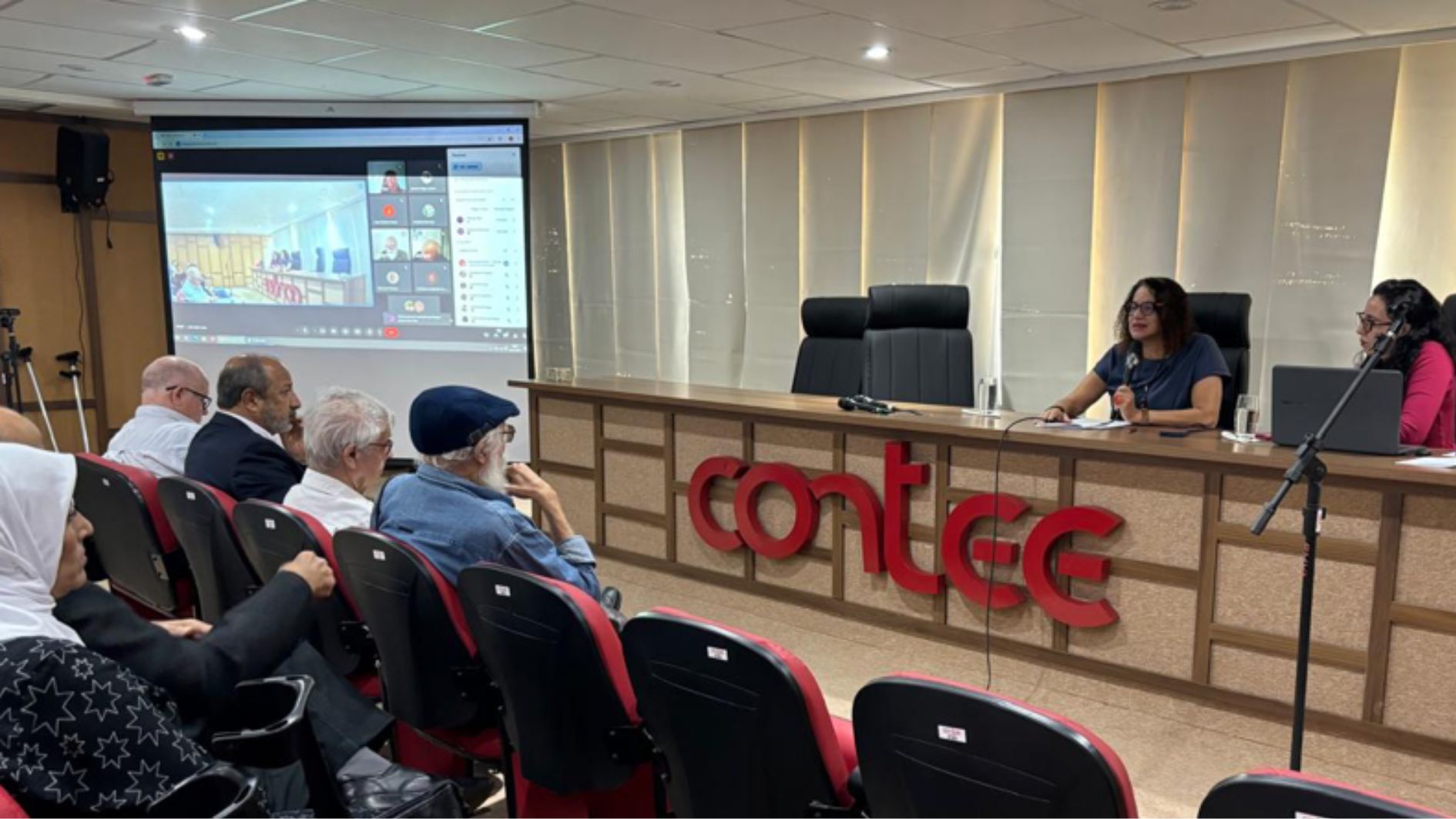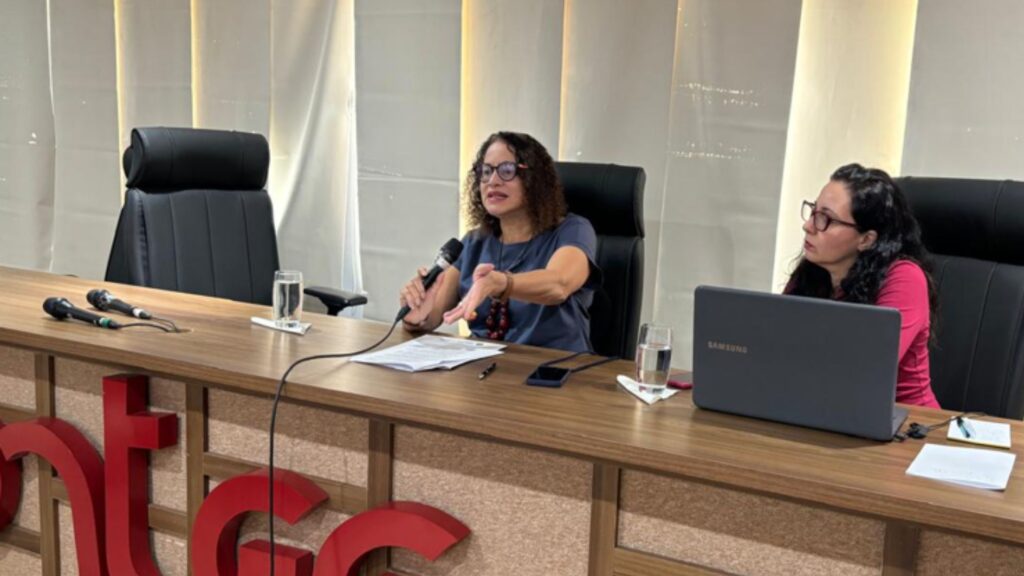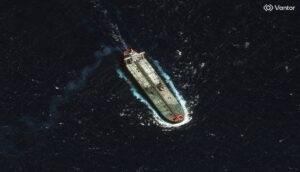
Published 11/22/2024 15:37 | Edited 11/22/2024 16:21
The international situation in the face of the crisis of neoliberalism, the resulting rise of far-right forces, current conflicts and the struggle of the global South for greater protagonism with Brazil as one of its main leaders were some of the points analyzed by the president of PCdoB and Minister of Science, Technology and Innovation, Luciana Santos, during the opening of the party’s National Seminar on International Issues, held this Friday (22). The event was held in a hybrid manner, at Contee’s headquarters in Brasília, and via videoconference.
“We live in a unique political moment in Brazil and in the world. The movements that are underway on the international scene are of great magnitude”, said Luciana at the opening table.
She added that “an epochal change of this magnitude does not occur without tensions, without actions and reactions, without contradictions, without conflicts. We are contemporaries of hybrid wars, of the return of extremist and fascist political forces to the command of important nations. The once vaunted globalization is giving way to increasingly protectionist policies. The use of force continues to be the resource that imperialism uses to impose its interests on peoples and nations.”
As the leader highlighted, “a society that does not have its own vision, that does not have a national project, will be destined to be subservient to other nations. There is no autonomous foreign policy without a national project.”
In this scenario, Luciana highlighted the need to have our own vision of world events, “in a dialectical relationship between proletarian internationalism and the prism of national interests which, ultimately, aims to feed elements into our political action around our program and the construction of a New National Development Project”.
Crisis of capitalism
Luciana Santos also addressed some of the structuring elements that mark the international scenario today. Going back to the 2008 economic crisis, he recalled that its consequences led to the emergence of millions of unemployed people, deprived them of rights, weakened nations and resulted, to a large extent, in the rise of far-right forces.
“Capitalism in its current, neoliberal phase, governed by financialization, added to the productive transformations resulting from technological innovations, has widened the gap between capital and labor, producing the withdrawal of rights and the devaluation of work and generating an enormous mass of unemployed, ‘undesirable, disposable beings’”, he argued.
In the assessment of the PCdoB president, “the dominant elites appear to be divided in the face of the increasing contradiction between neoliberalism and democracy. On the one hand, there are those who want to face the situation while maintaining the foundations of political liberalism, with some margin of democratic freedoms. On the other hand, there is the option for strong far-right governments that aim, by force, to implement their agenda”.
Multipolar world

At the same time, another profound transformation has marked global geopolitics in the last period: the emergence of an increasingly multipolar world, with the consolidation of power poles made up of countries from the global South, which have their point of confluence and articulation in the Brics. .
“The main feature of the international scenario is the tensions and struggle arising from the search of the old imperialist powers, led by the USA, to maintain their status quo On the other side, there is a broad bloc of developing countries, with emphasis on socialist China, which seek to present an alternative to the current order based on the notion of shared development. And this divergence does not occur peacefully”, he pointed out.
As a result, the world is witnessing hybrid wars, color revolutions, armed conflicts and aggressions against sovereign nations. “Everything is valid to contain new poles of power,” he said.
As an example, Luciana cited the war between Ukraine and Russia. “The ultimate target of this aggression is the downfall of Russia and the weakening of China,” he stressed.
When addressing the serious situation experienced by the Palestinians, Luciana reinforced that “Zionist forces completely destroyed the entire Gaza Strip. And in its objective of redrawing the geopolitical map of the Middle East, Israel maintains aggressions against Iran and Lebanon simultaneously.”
Luciana also discussed the decision taken by the International Criminal Court which issued, this Thursday (21), arrest warrants against Benjamin Netanyahu and his former Minister of Defense, Yoav Gallant, focusing on accusations of the use of hunger as a method of war and the commission of crimes against humanity.
In her analysis, Luciana Santos also highlighted the destructive role that big techs have had, especially from a political point of view. “These large companies, most of them based in the USA, have been — based on algorithms and the dynamics specific to social networks — manipulating political results, influencing with disinformation, feeding and supporting extremist forces around the world.”
For Luciana, this element highlights “the struggle for control of the ‘technological edge’, especially where it immediately affects military advancement, in the field of artificial intelligence, quantum computing and communication”.
Brazil in the midst of this scenario
Despite the adverse scenario also in Latin American countries — such as Argentina under Javier Milei — Luciana highlighted the central role that Brazil, with the Lula government, has been playing in the people’s struggle. One of the most recent strengths of this performance was the holding of the G20 summit, this week, and the achievements obtained during the meeting.
She highlighted that the event “exceeded all expectations” and that in a scenario where multilateralism is experiencing an acute crisis, “Brazil managed to bring together the powers of the G7, NATO and the Brics in the same place with a strong and advanced final declaration ”. Furthermore, he pointed out that Brazil has consolidated an important partnership with China, which will result in a significant volume of investments.
Amidst this set of challenges on the global stage, Luciana highlighted the importance of the role of the Secretariat of International Relations in coordinating the most varied fronts of action of the communists.
She listed internationalist solidarity and the fight for peace as central points. In this sense, he highlighted that “the genocide committed against the Palestinian people by Israel must be among our priorities for action. Added to this is our solidarity with Venezuela and in particular with Cuba, which is experiencing and will continue to experience one of the most difficult political moments since the revolution.”
Furthermore, Luciana highlighted the importance of PCdoB’s activities in multilateral party spaces, including the São Paulo Forum and the International Meeting of Communist and Workers’ Parties; strengthening relations with parties that hold power in other countries — such as China, Vietnam, Cuba, Korea and Laos — and strengthening and expanding work among party foundations.
At the end of her speech, Luciana highlighted: “the central issue that marks our time, and as such this entire context, is the alternative to the current model, which is increasingly exclusionary and authoritarian and which puts human life itself at risk. Our fight is for an anti-capitalist alternative, for socialism, in the form and conditions of our time. This is our strategic objective, guiding our program which, focused on the Brazilian reality, takes place through our fight for a New National Development Project”.
Setbacks of neoliberalism
In her presentation, Ana Prestes reinforced the points made by Luciana Santos, highlighting that “neoliberal globalization suffered important setbacks, accelerated by the pandemic”.
In the current period, he emphasized, “we live in a world of wars, militarization, economic deterioration and social crisis in several countries, including the hegemonist West, which is also losing the ability to impose its criteria and power on the rest of the world”.
This implosion led to the creation of new poles and the demand for a multipolar world, with the creation of groups such as Brics, which “seeks precisely another path, organizing an alternative with a shared future in the sense of seeking development for all and the end of wars ”, he stated.
Ana Prestes concluded by saying that “the world that emerged from the Second World War and whose capitalist economy was governed by the Bretton Woods system, with the IMF, World Bank, etc., is giving way to more concrete and broader alternatives and Brics Plus is today an example from that”.
The leader also highlighted the defense and solidarity with the Palestinian people as the communists’ priorities. He also said that it is necessary to pay attention to the war in Ukraine, which is entering a new, much more dangerous phase” and pointed out the important role of China and Brazil in the search for a solution.
She also reaffirmed that Cuba “more than ever needs our solidarity, our effort and all the support we can give in the face of the energy crisis, which is dramatic and has affected the lives of the Cuban population.”
Source: vermelho.org.br

